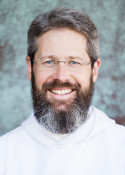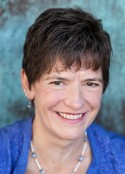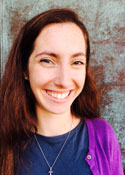FROM THE RECTOR
 The Identified Patient
The Identified Patient
The last couple of weeks have been incredibly intense—politically, culturally, and emotionally. As Donald Trump has assumed the Presidency of the United States, as of this writing, in the first twelve days of his time in office, he has issued 18 Executive Orders and Presidential Memos (interestingly, compared to 19 Executive Orders in 12 days for Barack Obama in 2009).
Those orders have ranged from the creation of a wall along our entire border with Mexico, to a travel ban on people immigrating to the U.S. from seven Muslim-majority countries, to the reversal of the “Mexico City Policy” which governs U.S. funds given to international organizations that provide abortion services, to an order to revive and/or expedite a couple of crude oil pipelines. Just to name a few.
Some of these orders were expected—the “Mexico City Policy” has been reversed by each President depending on their political party since Ronald Reagan. Almost all of them were signaled by Donald Trump since his campaign began. And many of them have been highly controversial, both in content, in precedent, and in ways that they are being enforced.
No matter your position, the combined effect has been that for many Americans, our heads have been spinning, day after day. And the fallout has been across the board. For those who have been detained in airports across the country it has been a nightmare, as a vaguely written order has resulted in chaotic and uneven enforcement. For many immigrants and those with ties to countries outside the U.S., it has led to feelings of fear and trepidation. For those who have seen these orders as long overdue, it has been satisfying. And for those for whom these orders represent an unjust and immoral use of power, it has been devastating.
One of the effects of this election and especially of the past twelve days has been the extra-ordinary focus on Donald Trump. I realize that as the President, he has tremendous power: positional, public, even coercive. And, that Donald Trump seems to have an insatiable appetite for attention. But it has also made me remember one of the teachings of Dr. Murray Bowen, and later, one of his students, Rabbi Ed Friedman.
Dr. Murray Bowen was a mid-20th century psychiatrist and professor of psychiatry at Georgetown University. He pioneered the notion that for therapeutic change to be successful, it had to take into account the entirety of the relational system, not simply the individual themselves.
One of the understandings that Bowen taught was that of the Identified Patient. He found that often a dysfunctional system (family, workplace, church, country), would identify one person as the reason for the dysfunction. Rather than deal with the historic issues or the present challenges, the group often focuses their attention solely on that individual. Scapegoat or malcontent, the responsibility for the ill-health of the relational system is is seen to rest upon that individual’s shoulders.
It’s my sense that for many in our country, Donald Trump is an identified patient. And, that for many other people, in similar ways, Barack Obama was the identified patient. In both cases, those two men held or hold remarkable power, and used or use it to particular ends. And it is my sense that our country’s dysfunction, politically and relationally, continues to suffer.
To see Donald Trump (or for that matter Milo Yiannopoulos) as an identified patient in our national system does not mean that we remove that person from accountability. I write this not to diminish the effects of their actions, simply that seeing them only in this light is ultimately counter-productive. But is does means that we have responsibility and opportunity. Responsibility in that we are members of a sick body, and as Christians are called to do our part to provide balm and healing. Opportunity in that there is not much likelihood that our actions by themselves will directly affect President Trump—but there are myriad possibilities to work for justice, reconciliation, and righteousness in our neighborhoods, cities, regions, states, and networks that reach beyond our borders. Each of can work towards the health of this body.
By many measures, it appears to me that this nation, the cultural construct of the people who live between the Pacific and Atlantic coasts and the borders of Canada and Mexico, that we are sick. And that we have been sick for some time—some will argue for a decade or more, others that it’s been for centuries. No matter the duration, the cure simply will not be found in actions, inactions, or even removal of a President.
With God’s help, the way forward will be within the body, the many parts that make us whole.
Peace,
Phil+
From the Vocations Committee
Responding to the “Tug” of the Spirit
 In 2007 I began a process of vocational discernment. I would not have called it that at the time, but it is clear in retrospect that that is what it was. At the beginning, I was an independent consultant working with non-profit, public sector, and philanthropic organizations. I noticed some kinds of work inspired me to stay up late at night, while I procrastinated on other kinds. Specifically, when I was doing work for Episcopal congregations or for the Diocese of California I was energized and went back to it after my children were in bed, while my “real work” as a consultant was not getting nearly as much of my attention. This accompanied the recognition that I was putting more effort into my volunteer work than into that which paid my bills. These insights were unsettling to say the least. To make a long story short, my discernment resulted in the launch of Center for Church Vitality and in a position as the Director of Field Education and Lecturer in Congregational Studies at Church Divinity School of the Pacific, the Episcopal seminary in Berkeley.
In 2007 I began a process of vocational discernment. I would not have called it that at the time, but it is clear in retrospect that that is what it was. At the beginning, I was an independent consultant working with non-profit, public sector, and philanthropic organizations. I noticed some kinds of work inspired me to stay up late at night, while I procrastinated on other kinds. Specifically, when I was doing work for Episcopal congregations or for the Diocese of California I was energized and went back to it after my children were in bed, while my “real work” as a consultant was not getting nearly as much of my attention. This accompanied the recognition that I was putting more effort into my volunteer work than into that which paid my bills. These insights were unsettling to say the least. To make a long story short, my discernment resulted in the launch of Center for Church Vitality and in a position as the Director of Field Education and Lecturer in Congregational Studies at Church Divinity School of the Pacific, the Episcopal seminary in Berkeley.
My journey of vocational discernment took almost ten years and included many times of uncertainty and even despair. I sometimes thought that it was all a big mistake. I was fortunate to have several people who listened, prayed, and let me cry as I made my way through those tough times. Those same people also encouraged and affirmed my sense that I was being pulled toward something new. Among those who helped me find my way were clergy and friends in the Episcopal Church, some of whom were members of All Souls. When I was unable to see the way forward, these individuals provided some light, not by telling me what they thought I should do, but by listening and praying with me so that together we experienced the prompting of the Spirit. With these companions I was able to explore experiences, insights, and questions and to discern the direction toward which the Spirit was calling. Each of these conversations illumined a few more steps on my path.
The Vocations Committee at All Souls is here to offer you similar support for discernment – a process of recognizing and responding to the Spirit’s prompting. Discernment is not reserved for those who feel called to ordained ministry, and the Vocations Committee at All Souls recognizes that many, if not all, of us face moments when we sense the Spirit as a tug toward a new direction in our lives. If you are feeling pulled toward something new and would like a group of three people to spend time with you to pray, listen, and talk, please reach out to any member of the Vocations Committee – Marilyn Flood, Cynthia Clifford, Matt McGinley, Tom Reilly, and myself. We can offer a group of faithful people to help you discern where the Spirit is calling you, shining a light on your path forward.
– Caroline McCall
From the Associate for Youth Ministries
Coming Together: Reflections on Forma
 I spent Wednesday through Friday of last week at Forma, a conference for Episcopalian formation leaders. Leaders of children, youth, and adult programs at churches from across the country came together in Santa Ana to collaborate and learn from each other, the speakers, and the workshop leaders.
I spent Wednesday through Friday of last week at Forma, a conference for Episcopalian formation leaders. Leaders of children, youth, and adult programs at churches from across the country came together in Santa Ana to collaborate and learn from each other, the speakers, and the workshop leaders.
There were many amazing workshops, but the highlights of the trip were the keynote speakers: Eric Law, Andrea McKeller, Nancy Frausto, and Nadia Bolz-Weber. Eric Law is an Episcopal priest who started the Kaleidoscope Institute (a nonprofit) and has written several books. Andrea McKeller started a church in a nursing home. Nancy works at what she called a “scrappy” church in New York City. Nadia Bolz-Weber is a Lutheran pastor and author.
While all of their speeches were brilliant, memorable, and inspiring, Nancy’s and Nadia’s especially stand out. Nancy started by asking us, “What does your church sound like? What does your church smell like?” I thought of the sounds of children playing in the courtyard, folk music from the Angel Band, and dozens of voices singing the Lord’s Prayer in a cappella harmony. I remembered the smells of incense at the Easter Vigil, coffee in the narthex, and jambalaya on our Open Door Dinner Sundays. What does All Souls sound and smell like to you? Nancy described her “scrappy” church as one that sounds like an emergency room and smells like the streets of New York City, and she hopes that’s what our churches sound and smell like.
Nadia started by reading verses from the Gospels on worry (Matthew 6:25-34 and Luke 12:22-31, roughly). All of the speakers recognized the state of our country right now. I don’t know if Nadia had already planned to use those verses, but they hit home. She talked about a “twisted, tangled thing” inside of her that tries to deny God’s goodness, grace, love, and promises. Eventually she said, “Let’s call it sin for short.” I’d never heard sin described in that way, but it fits.
Overall, Forma was enlightening, rejuvenating, and a lot of fun! Listening to the leaders and being around colleagues, especially with everything happening in our country last week, was invaluable. I carry with me memories of rooms filled with laughter and new ideas.
I also realized, and am incredibly grateful for, the ways that All Souls is doing well. All Soulsians, do you know how awesome you are? As I listened to speakers about ways to serve our communities and other ways to be church in the world, I couldn’t help but note what recommendations they had that are already a part of our practices. There is always more to do. We can always improve, grow, and move forward. But just so you know, we’re on the right track. Well done, All Soulsians. Keep up the great work.
Peace,
Jess
From the Associate for Ministry Development
 For those of you who missed the Rule of Life class, it’s not too late! On Shrove Tuesday, February 28th, we will take a moment around the fire, to bless our Rules as we head into Lent. So, if you haven’t made one yet, or haven’t yet finished yours from the class, you have a few more weeks to finish them. Lent is a particularly good time to begin, or add to, the practice of keeping a Rule of Life. There is more support, as we gather more often and more intentionally than in other seasons, with an emphasis on reflection and the practices of living faithfully. It is a season of practicing, really – knowing that we rarely get it right the first time. Carrying a new Rule of Life into Lent can help give more structure and direction to the season, pointing us towards Easter.
For those of you who missed the Rule of Life class, it’s not too late! On Shrove Tuesday, February 28th, we will take a moment around the fire, to bless our Rules as we head into Lent. So, if you haven’t made one yet, or haven’t yet finished yours from the class, you have a few more weeks to finish them. Lent is a particularly good time to begin, or add to, the practice of keeping a Rule of Life. There is more support, as we gather more often and more intentionally than in other seasons, with an emphasis on reflection and the practices of living faithfully. It is a season of practicing, really – knowing that we rarely get it right the first time. Carrying a new Rule of Life into Lent can help give more structure and direction to the season, pointing us towards Easter.
What is a Rule of Life? It is an intentional way of considering and ordering our life towards God. It can be a chart, a picture or drawing, a few paragraphs, etc., but it functions as scaffolding to our lives to help us prioritize what is important and not just what is urgent, with a mind towards spiritual growth and movement towards God. You can do it as an individual, as family, in covenant with friends, or any way you think will help you live well.
Check the website for more resources on how to start building a Rule of Life. There are prompts for reflections, examples of different shapes and kinds of Rules of Life, and some framework to help you engage the process. And read Liz’s article about her own Rule of Life here. Set some time aside to reflect, to envision the life you feel called to live, and to name the ways you want to do this. And then join us on Shrove Tuesday where we will, as a community, set these in motion.
New Adult Formation Class
Creeds…What are they good for? with Scott MacDougall (Parish Hall)
Beginning next Sunday, February 12
A lot, in fact. Have you wondered why we have creeds at all? Why we pray with them? Aren’t those heresies over anyway? Seriously, what good could come of these ancient statements? Prof. Scott McDougall, All Soulsian and systematic theologian, is ready for any and all questions, thoughts, concerns and rants you may have. Fair warning: you may leave this class with a deeper appreciation and fondness of these statements of trust than you ever imagined.
COOKIE MAKING PARTY
Happy St. Valentine’s Day: Let’s make cookies! Join us on Sunday, February 5 from 1:00 – 4:00 pm in the Parish Hall for fabulous intergenerational fun! Bring your kids. Bring your neighbors. Bring your grandparents. We will bake cookies to eat, cookies to take home, and cookies to serve to our guests a the Open Door Dinner. All supplies provided.
BIG DATES IN 2017
Wondering about the parish camping trip to Big Sur? The Parish Retreat? Our summer day camp? Here is a list of the major events in 2017 that you can add to your calendar.
ONE BOOK, ONE PARISH
In summer 2017, All Souls members will read one book and come together each week to discuss it from different perspectives. During January and February, the Adult Formation Committee invites your nominations for the book we’ll all read. Books may be fiction or non-fiction.
Nomination forms and a box for submissions are available at the back of the chapel and in the narthex outside the main worship space. Or submit your nomination online here.
Nominations are due Sunday, February 26.



